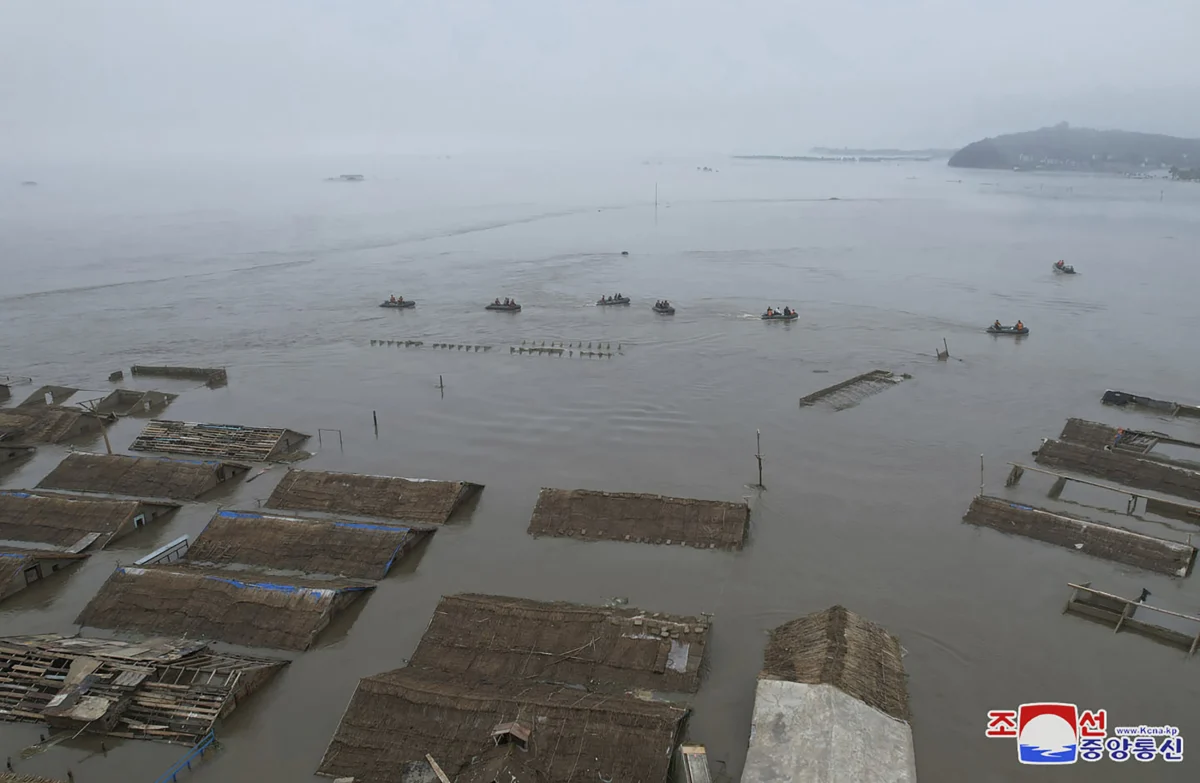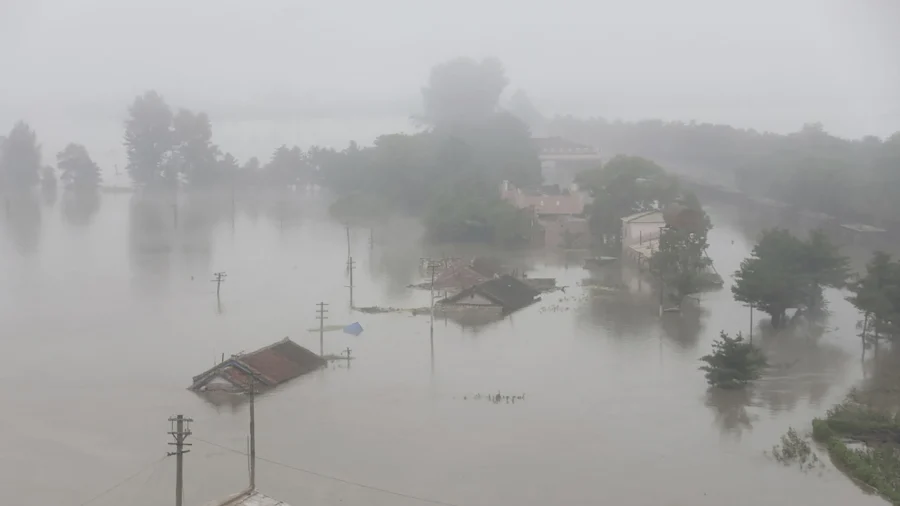Russian President Vladimir Putin offered humanitarian assistance to North Korea after the country was struck by recent floods, which potentially claimed thousands of lives, with many people reportedly still missing.
Putin’s gesture marks another sign of expanding relations between the two nations. The Russian president sent a message to North Korean leader Kim Jong Un on Aug. 3 where he expressed deep sympathy and support amid the deadly floods, alongside his willingness to provide disaster relief to the country, according to North Korea’s only media source, the state’s Korean Central News Agency (KCNA).
A similar message was conveyed by Russian state news agency Tass, which reiterated that Putin extended his unequivocal “assistance and support” to North Korea.

In response to the offer, which was reportedly relayed to the North Korean leader by the country’s Foreign Ministry, Kim responded by expressing deep gratitude for Russia’s offer, asserting his position towards the Russian president, in which he referred to Putin as a “true friend.”
Kim reportedly went on to reassure Russia that his country has taken the necessary steps to deal with the aftermath of the calamity, but would ask for assistance at a later stage if needed, KCNA reported.
Ties between the two countries have historically been strong, following the establishment of North Korea’s communist regime, also known as the “Democratic People’s Republic of North Korea” (DPRK), shortly after the end of World War II.
Ties further improved in 2022, following Russia’s military action in Ukraine, amid some external public speculation that North Korea supplied conventional weapons to aid Russia’s war effort in return for military and economic assistance.
The two countries further solidified their alliance in June, during a meeting in Pyongyang, which saw both leaders sign a pact, in which they offered mutual assistance to each other in the event of either country being attacked.
The agreement between the two countries was widely regarded as the biggest defense deal since the end of the Cold War.
Meanwhile, on Aug. 1, South Korea also offered humanitarian support to its northern neighbor. South Korea’s offer, however, will likely be ignored by Kim as tensions between the countries have reached their highest point in years.
Kim lambasted South Korea’s media on Aug. 2 during a visit to a military unit involved in flood evacuation efforts, for what he referred to as attempts to tarnish North Korea by exaggerating the death toll from the floods, without mentioning South Korea’s humanitarian offer.
More than 4,000 houses and nearly 7,500 acres of farmland, in addition to numerous public buildings and other infrastructure, has been flooded in record downpours, which hit North Korea’s northwestern region on July 27, according to KCNA.
Although the exact extent of casualties isn’t known, South Korean media have estimated that the death toll and the number of missing persons could be as high as 1,500. Kim has referred to South Korea’s claims as a “smear campaign.”
KCNA recently also quoted Kim as saying the flood caused a number of casualties “that cannot be allowed” while casting blame on public officials, although he didn’t elaborate further.
Widespread deforestation and an increasingly weak infrastructure have put North Korea at high risk of resulting natural disasters.
The Associated Press contributed to this article

